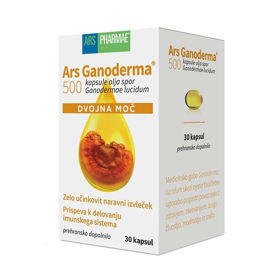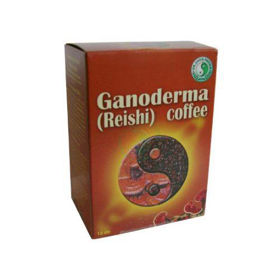Customer question:
Which processes in the body are leukocytes responsible for? Anonymous customer's question
Pharmacist's answer:
Leukocytes, also known as white blood cells, are a vital part of the immune system and play an essential role in defending the body against infections, diseases, and other foreign bodies. Their primary function is to defend against bacteria, viruses, fungi, and other microorganisms.
Leukocytes participate in various processes, some of which are:
- Phagocytosis: Phagocytosis is the process by which white blood cells, called phagocytes, absorb and destroy foreign microorganisms. Phagocytes recognize and absorb bacteria, viruses, and other foreign substances, which helps prevent infections.
- Immune response: leukocytes are vital to the body's immune response. Lymphocytes, a particular type of leukocyte, play a key role in acquiring immune memory and directing a specific immune response against certain pathogens.
- Antibody production: B-lymphocytes, a leukocyte subtype, are responsible for producing antibodies. Antibodies are proteins that recognize and neutralize foreign microorganisms or other threats.
- Regulation of the inflammatory response: leukocytes regulate the body's inflammatory response to injuries or infections. The inflammatory response involves the release of signaling molecules that attract white blood cells to the site of inflammation.
- An essential role in cellular and tumor immunology: leukocytes recognize and remove abnormal cells, including tumor cells.
Leukocytes represent the body's key line of defense and are indispensable for maintaining the health of the immune system and the entire organism. Different types of leukocytes have specialized tasks and participate in complex immune processes.
Do elevated leukocytes in the blood cause blood cancer?
Elevated levels of leukocytes in themselves are not a direct cause of blood cancer. Leukocytosis, or an increased white blood cell count, can be a symptom or sign of various conditions, including infections, inflammation, allergies, exercise, and other illnesses. If leukocytes are elevated, the key is to identify the underlying cause.
Blood cancer, such as leukemia, refers to a group of cancers that affect blood-forming cells, especially white blood cells. While an elevated white blood cell count can be one of the symptoms of leukemia, it does not in itself mean you have leukemia or another form of blood cancer. Diagnostic procedures such as blood tests, bone marrow biopsy, and imaging tests are required to diagnose blood cancer.
Talk to your doctor if you have concerns about elevated white blood cell counts or other health problems. The doctor will perform appropriate tests to determine the cause of the elevated white blood cells and suggest further treatment or control steps.
What causes a low level of leukocytes in the blood?
A low level of leukocytes in the blood, known as leukopenia, can occur due to various causes. Several types of leukocytes and white blood cells have a specific role in defending the body against infections.
Some causes of a low white blood cell count include:
- Infections: some viral infections, such as HIV, hepatitis C, influenza, and others, can cause a decrease in the number of leukocytes.
- Autoimmune diseases: Certain autoimmune diseases like lupus can affect white blood cell levels.
- Bone Marrow: Bone marrow diseases such as leukemia, myelodysplastic syndromes, or aplastic anemia can affect the production of leukocytes. The bone marrow can become infiltrated with cancer cells or other abnormal cells, leading to decreased leukocyte production.
- Autoimmune disorders: certain autoimmune diseases, in which the immune system attacks its tissues, can lead to a decrease in the number of leukocytes.
- Radiation and chemotherapy: treatment with radiation or chemotherapy can affect the production of white blood cells.
- Spleen Abnormalities: The spleen is an organ that plays a role in controlling leukocyte levels. Various diseases, including some spleen diseases, can affect the number of white blood cells in the blood.
- Long-term exposure to toxins: some chemicals and toxins can suppress the production of white blood cells.
Talk to your doctor if you have a low white blood cell count or are concerned about these health problems. The doctor can carry out the necessary tests, diagnose, and recommend appropriate treatment, depending on the cause of the leukopenia.
How does the test measure the value of leukocytes in the blood work?
A test to measure the level of leukocytes in the blood is part of a standard hematological examination called a complete blood count (CBC). The doctor or nurse will use a thin, sterile venflon or needle to take a blood sample from a vein inside the elbow. The area is usually cleaned with an antiseptic before the blood is drawn.
Blood is collected in a vacuum tube containing an anticoagulant to prevent blood clotting and preserve the integrity of blood cells. The blood sample is then sent to a laboratory where it is processed. Laboratory technicians will use automated or manual blood analyzers to count white blood cells. Blood analyzers will count the number of different types of blood cells, including white blood cells. The results are usually shown as the number of cells per microliter of blood.
After performing the test, the doctor will receive a report on the test results and interpret them in the context of the person's health condition. The test results include the total number of leukocytes divided into different types: neutrophils, lymphocytes, monocytes, eosinophils, and basophils. If the results are outside the normal range or other worrisome circumstances, the doctor may order additional tests to determine the cause of such deviations.
Interesting reading: Thorough-blood-test
Interesting reading: Suspect leukemia













